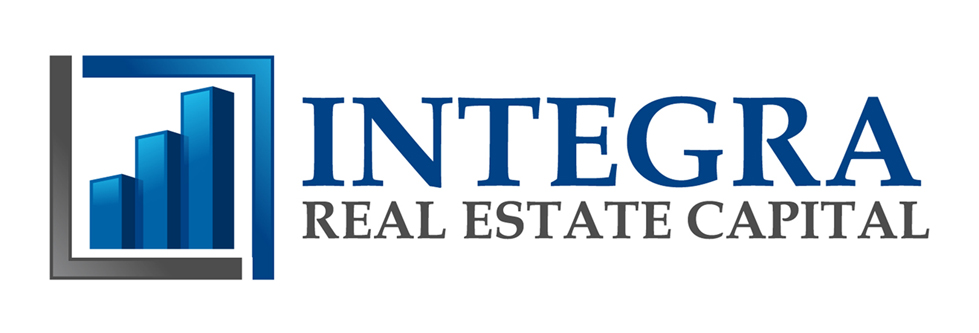Cash Advance Reverse Consolidation
Running a business doesn’t have to be stressful. Free-up cash flow for expansion, purchasing inventory and managing payroll.
Since 2013, Integra has been helping business owners achieve financial success
Get access to funding in as little as 24-48 hours—because your business doesn’t wait
No Collateral Required - Flexible repayment plans that are designed around your revenue cycle
At first glance
Reverse Consolidation Explained
A reverse consolidation can be a powerful financial tool for businesses overwhelmed by multiple cash advance payments causing overdrafts and NSF fees, especially when the business is looking to free up cash flow to buy new equipment, replenish inventory, or cover payroll.
By reducing the strain of frequent high-cost deductions, businesses can regain financial stability, improve their creditworthiness, and create opportunities to access more sustainable working capital financing solutions, such as business lines of credit, term loans, or SBA-backed funding, to support long-term growth and operational expansion.
KEY BENEFITS:
✅ Easier Business Budgeting – Plan your finances with confidence.
✅ Build a Path to Bank Loan Eligibility – Position your business for traditional financing.
✅ Bad Credit? No Problem! – Approval based on revenue, not just credit score.
✅ Transparent Terms – No hidden fees, no surprises.
Small Business Funding Solutions in 3 Easy Steps
🚀 Pre-Qualify in Minutes! NO Obligation, NO Credit Check.

1. COMPLETE APPLICATION
Apply in just a few minutes or call us directly at (212) 353-2800 to discuss your funding requirements in person.

2. REVIEW YOUR OPTIONS
Compare safely and securely all of the pre-approved offers. Our team provides multiple funding options.

3. GET YOUR FUNDS!
Sign and submit the contract to receive the funds via wire transfer or ACH. Same day funding is available!
What Our Clients Are Saying

Bill Whelan
ROI Homes
“The easiest financing experience I’ve ever had. Quick, seamless, and professional. Would use Integra again for my next funding cycle”

Bharat Patel
Partner – A1 Pizza
“Needed to buy new equipment for my restaurant. Integra got me funded when my bank turned me down. Highly recommend!”

Crystal Brown
Top Cleaning Services
The Integra team was great to work with. Thank you for your transparency and the quick funding. Glad I found you in a time of need.
What is a Reverse Consolidation?
A reverse consolidation is a financial strategy that can help businesses manage their debts and cash flow more effectively. It involves consolidating multiple existing merchant cash advance positions, whereby the consolidation lender deposits funds weekly into a merchants bank account to cover the payments of outstanding MCA positions.
Unlike traditional debt consolidation, which combines different types of debts, merchant cash advance reverse consolidation focuses specifically on streamlining the repayment of merchant cash advances, reducing the frequency of daily or weekly deductions, and improving cash flow stability, making it easier for businesses to qualify for lines of credit, equipment financing and other conventional financing options.

Consider Future Growth, Not Just Immediate Relief
A reverse consolidation isn’t just about survival – it should also position your business for long-term success. By stabilizing your finances now, you can improve your creditworthiness and qualify for better financing options (like traditional business loans) in the future.
Benefits of Reverse Consolidation
Reverse consolidation offers several benefits to businesses dealing with the burden of multiple cash advance payment obligations. Some key advantages include:
1. Fast and Simple Approval Process: Qualifying for a reverse consolidation is typically quick and hassle-free, requiring minimal documentation. In most cases, lenders only need the most recent 3 to 4 months of bank statements and a copy of the latest credit card processing statement to assess eligibility. This streamlined process allows business owners to secure funding efficiently without the delays of traditional financing.
2. Improved Cash Flow: This program can reduce daily or weekly payments by 30-50%, making repayment more predictable and manageable. The improved cash flow allows businesses to allocate funds more efficiently toward operations and growth.
3. Immediate Relief from Position Stacking: Reverse consolidation helps businesses gradually eliminate multiple cash advance obligations that strain cash flow. By reducing financial pressure, businesses regain flexibility to cover payroll, invest in equipment, expand, and market effectively.
4. Enhanced Financial Stability: By streamlining cash advance repayments, businesses can regain control over their finances, reducing the risk of overdrafts and NSF fees. This financial stability creates a stronger foundation for long-term growth and better access to future funding options.
5. Helps Avoid MCA Default and Legal Consequences: With structured repayments, businesses prevent legal actions, lawsuits, and aggressive collections from MCA providers.
Drawbacks of a Reverse Consolidation
Here are some potential drawbacks and key considerations to keep in mind when evaluating a merchant cash advance consolidation:
» Extended Repayment Period: While consolidating merchant cash advances can simplify repayment, it often leads to a longer repayment period. This means that businesses may be bound to the consolidated program for an extended period, potentially impacting their financial flexibility in the long run.
» Total Payments: Depending on the terms negotiated during the reverse consolidation process, businesses may end up paying a higher total amount over the extended repayment period. It is crucial to carefully assess the factor rates and repayment terms to ensure that the overall cost does not outweigh the benefits gained.
» Limited Availability to Severely Overextended Business: Businesses with extremely high levels of debt or severely declining revenues may not qualify for a reverse consolidation.

Key Takeaway
Remember, these drawbacks should be weighed against the potential benefits and specific circumstances of your business. It is advisable to consult with financial experts or professionals who can provide personalized guidance based on your unique situation.
Is a Reverse Consolidation Right For Your Business?
If any of the following apply to your business, an MCA reverse consolidation may be a viable solution:
1. You Have Multiple MCA Advances Draining Your Cash Flow
Many businesses take out additional MCAs to cover operating expenses, leading to a debt cycle known as “MCA stacking.” This results in multiple daily or weekly withdrawals that can eat up 30-50% of revenue. A reverse consolidation lowers your total daily payment, freeing up cash flow.
How do you know if this is the right startegy for you? Well, for starters, begin by reviewing the terms and conditions of your existing merchant cash advances. Consider factors such as factor rates, repayment schedules, and any potential penalties for early repayment. This will help you determine the need for a reverse.
2. Your Business is Struggling to Keep Up with Payments:
If you find yourself juggling multiple MCA repayments and struggling to cover payroll, rent, and other operational costs, it’s a sign you need relief. MCA reverse consolidation allows you to extend repayment terms and reduce daily obligations, making payments more manageable.
3. You want to avoid Default or Legal Issues:
MCA defaults can trigger aggressive collection tactics by MCA providers, including:
– Bank Account Freezes
– UCC Liens on on You Account Receivables
– Legal Action From MCA lenders (i.e. bank account restraints and possible garnishments)
Tip #1:
Seek Professional Assistance
Given the complexities of reverse consolidation, it is advisable to consult with financial experts or specialized companies that can guide you through the process. These professionals can assess your current situation, negotiate with MCA providers on your behalf, and help you identify the most suitable consolidation options.
Tip #2:
Develop a Consolidation Plan
Based on the evaluation and guidance received, create a consolidation plan tailored to your business’s needs. This plan should outline the proposed terms for the consolidation, including factor rates, repayment schedules, and any negotiated modifications.

Work with a Transparent & Reputable Lender
Not all lenders are created equal—avoid predatory terms, hidden fees, or aggressive renewal cycles. A good lender will offer clear terms, no surprise costs, and a structured repayment plan designed to help you escape the MCA cycle, not keep you trapped in it.
How Fast Can a Business Get Funded?
The timeline for securing reverse consolidation funding depends on multiple factors, including the complexity of the business’ finances and the lender’s internal underwriting processes. On average, the process can take anywhere from 24 to 48 hours from the time all documentation has been received. It is advisable to consult with the lender directly to understand the expected timeline for a specific case.
Fast Funding Due to:
Minimal documentation: Unlike traditional bank loans, MCA’s typically require minimal documentation. This can make the application process faster and less complicated.
No collateral required: Reverse consolidations are typically unsecured, meaning businesses can secure funding without putting up collateral. This eliminates the need for asset evaluations, streamlining the approval process and allowing for faster access to capital when it’s needed most.
Electronic transfers for faster funding: Many lenders now use electronic fund transfers, accelerating the funding process and ensuring quick access to capital. However, processing times can vary between MCA providers, so business owners should confirm specific timelines with their lender.
NOTE: Businesses with good credit and stable business history can get approved and funded faster than those with poor credit and unstable business history.
What Industries Qualify for a Reverse Consolidation?
Reverse consolidations are generally available to businesses that process credit card transactions or other forms of electronic payments. As a result, a diverse range of industries may qualify for this type of financing, including but not limited to:
1. Restaurants & Hospitality
Restaurants, bars, hotels, and catering services have daily revenue streams but high overhead costs (rent, payroll, inventory). Seasonal fluctuations in business (e.g., summer tourism vs. winter slowdowns) make managing MCA payments challenging. The industry often turns to MCAs for fast funding, leading to multiple positions stacking up.
2. Retail & E-commerce
Retail businesses and e-commerce stores require constant inventory restocking and often take MCAs to fund bulk purchases. Seasonal trends (holidays, back-to-school, Black Friday) create revenue fluctuations, making MCA payments unpredictable. Online stores rely on customer transactions and credit card sales, making them ideal for cash flow-based repayment structures.
3. Trucking & Logistics
Trucking companies face rising fuel costs, maintenance expenses, and driver payroll. Payment cycles in logistics often range from Net 30 to Net 60, meaning income is delayed while MCAs require immediate repayment. The industry heavily relies on MCAs to cover expenses between client payments.
4. Construction & Landscaping
Landscapers, contractors and construction businesses work on long project timelines but need upfront funding for materials, labor, and permits. Inconsistent cash flow due to delayed client payments makes MCA repayment difficult. Many contractors take out multiple MCAs to stay afloat between project payments.
5. Auto Repair & Dealerships
Auto repair shops and dealerships require large upfront inventory and equipment investments. Repairs and car sales can be inconsistent, making high daily MCA deductions unsustainable. Many businesses in this sector use MCAs to purchase parts, hire technicians, or finance floor plan expenses.
6. Medical & Healthcare Practices
Medical clinics, dental offices, and wellness centers often take out MCAs to finance new equipment, software upgrades, or expansion. Insurance reimbursement delays (30-90 days) create cash flow challenges while MCA payments require immediate repayment. High operational costs (rent, staffing, compliance) make MCA stacking common.
7. Beauty & Personal Care Services
Spas, salons, and barbershops experience seasonal demand shifts and fluctuating income. Many businesses in this sector take out MCAs to fund renovations, product purchases, and marketing. Daily repayment structures can severely impact profitability.
Reverse Consolidation FAQs
What Are the Repayment Terms?
The term of an MCA reverse consolidation varies depending on the lender, the total outstanding balances being consolidated, and the business’ financial profile. Typically, repayment terms range from 6 to 24 months, though some lenders may offer longer terms based on cash flow strength and risk assessment.
Can I Get Additional Funding While in a Reverse Consolidation?
Yes and no. Some lenders offer additional working capital alongside a reverse consolidation loan, providing extra funds to support business growth, while others impose stricter limitations on expanding the existing capital stack. If securing additional capital is essential, it is highly recommended to discuss this upfront with the lender and clarify terms before committing to a contract.
How Is Reverse Consolidation Different from MCA Buyout?
- Reverse Consolidation: A lender provides funding to help cover multiple daily/weekly MCA payments over time, while you repay the new reverse consolidation at a more favorable pace.
- MCA Buyout: Directly replaces all existing MCA’s with one new loan, potentially at a lower cost but may require better financial standing.
What Happens If I Default on My MCAs Before Getting a Reverse Consolidation?
If you’ve already defaulted, options may still be available, but they may be more limited. A reverse consolidation works best before a default occurs to prevent legal action, collections, and business credit damage.
Are There Any Upfront Fees?
Some lenders charge small origination fees, but reputable providers will be transparent about costs before you agree to any terms. Be cautious of hidden fees from untrustworthy lenders.
ABOUT INTEGRA
Integra is a trusted financial services company committed to helping small business owners secure the capital they need to succeed. We specialize in connecting businesses with the right funding solutions tailored to their unique needs. Whether you’re seeking a term loan, equipment financing, or a line of credit, Integra provides expert guidance every step of the way, empowering you to take your business to the next level.
Why Choose Integra?
Fast Underwriting
24/7 Customer Support

Access to Wide Network of Lenders

Trusted Source of Business Financing

(212) 353-2800
Our team is standing by ready to answer any questions you may have.


